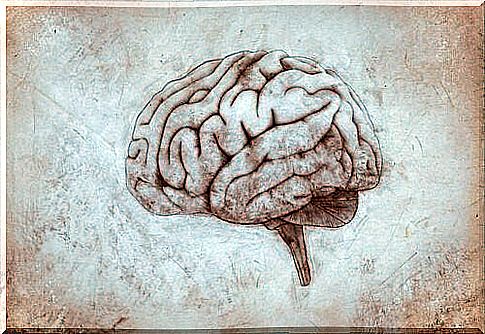What Is Experimental Psychology?

What is Experimental Psychology? To arrive at a precise and safe conclusion, researchers often employ different scientific methods . That is what experimental psychology mainly focuses on.
Experimental psychology explores basic concepts such as memory and motivation in a variety of populations and areas of research. This includes children, social settings in general and educational psychology.
Almost all experimental psychological work is performed in controlled environments such as research labs. Experimental psychologists manipulate the research variables to explore the relationship between cognition and behavior.
Other branches of psychology seek to understand human behavior and ways of thinking. Experimental psychology, on the other hand, focuses on conducting controlled experiments with named variables, research participants and statistical results.
The Origins of Experimental Psychology
Many people see Charles Darwin and his work On the Origin of Species ( The Origin of Species ) as the origin of experimental psychology. On the one hand, there is no doubt that Darwin’s revolutionary theory sparked the interest between biology and psychology.
In the early 1900s, psychologists began to use the natural sciences to analyze and explain the human mind. For example, William James, the founder of the American school of psychology, was deeply influenced by evolutionary biology. He supported the idea that the human mind is naturally adaptive, sensitive and intelligent.
Ultimately, behaviorism and other schools of thought in modern psychology contributed to what we see today as experimental psychology.

What do experimental psychologists do?
Experimental psychologists want to investigate behavior and the various underlying processes and functions that support it. They test participants to learn about various topics such as perception, memory, sensation, learning, motivation and emotions. They want to increase their understanding of this – and with it the understanding of all working psychologists.
The four fundamental requirements
For these psychological studies to be reliable, four fundamental requirements must be met:
- Determinism. Experimental psychologists, like most other scientists, work in a deterministic way. This refers to the assumption that the state of an object or event is determined by its previous states. In other words, cause and effect usually result in behavioral or mental phenomena. If a phenomenon is generally and generally accepted, it can be said that it is the “norm”. Psychological theories aim to establish and integrate these kinds of norms.
- Empiricism. Knowledge comes mainly from experiences that our senses allow. Therefore, the only thing we can really study is that which is visible. The concept of empiricism requires a contrast between hypotheses and theories with underlying observations of the world as it is. This is not about previous reasoning, intuition or other hunches.
- thrift. It’s about the quest for simplicity. According to this principle, research should arise from the simplest possible theories. If one encounters two different theories that nevertheless correspond to a certain extent, one ideally chooses the simpler of the two.
- Opportunity. According to this principle, hypotheses – which are based on theories – should be testable as time goes on. Scientists will see a hypothesis and the theory behind it as meaningless if they cannot prove or disprove it in any way. However, probability also has a downside: falsifiability. This means that a collection of observations can also refute or falsify a hypothesis.
- Operationalism. This term includes the concept of concrete and measurable actions. Experimental psychologists are currently trying to make unmeasurable phenomena measurable. They do this by linking them to both existing and new observations and reasoning.
Reliability and validity
Reliability measures the consistency, verifiability and repeatability of a study. If a study – with other people or over a different time frame – produces the same results as a previous study on the same phenomenon, it can be considered reliable.
Validity, on the other hand, measures the relative precision or accuracy of the study. This also guarantees the accuracy of the results and associated conclusion. This is very important in psychological studies. To determine the validity of a quantitative – numerical – measurement, one must first look at the different types of validity.
The four forms of validity
- Internal validity. With high internal validity, a study shows strong evidence of a causal relationship between two factors specifically. This also includes the fact that external factors (which the researcher did not manipulate himself) had no influence on the results. Thus, a study with high internal validity actually concludes that the manipulation of the independent variable is responsible for the measured change in the dependent variable.
- External validity. With high external validity, the results can be generalized to a larger population. Imagine a study with 500 participants, for example all smokers, in which the groups are randomized. The participants are therefore randomly divided into groups, just like people live “randomly” among themselves in real life. If the results of this can be credibly generalized to the rest of all smokers in the Netherlands (for example), then you can say that the study has high external validity.
- Construct validity. The researcher finds that the test measured what it was supposed to measure. The question to be asked here is this: are the dependent and independent variables accurate representations of the abstract concepts measured here?
- Content validity. This involves looking at whether the tested hypothesis really reflects the actual, broader theory on which it is based.

Final notes on experimental psychology
Although many people see experimental psychology as just another branch of psychology, experimental psychology can be found in all branches of psychology. To a certain extent, every movement applies methods that have emerged from experimental psychology.
Just think of life course psychologists (formerly developmental psychologists). They use experimental methods to study how people grew up in the past and how they develop in the present and in the future.
For example, social psychologists, in turn, use experimental methods to study how groups affect individuals. Health psychologists also use experimental techniques to better understand everything that contributes to health and disease.









